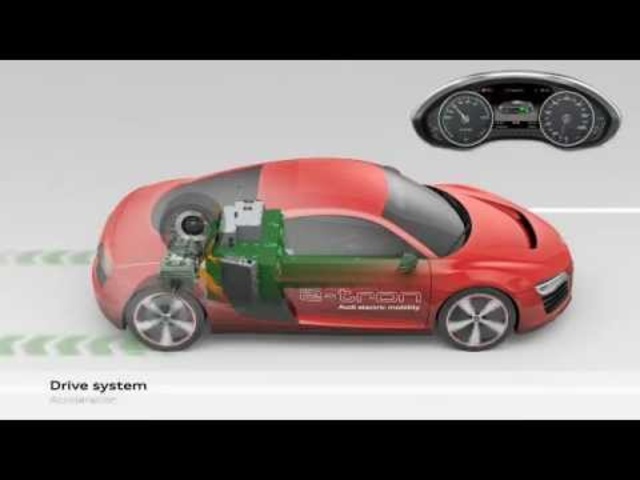Views: 3589
A Robot Wrote This Lexus Commercial Robots Now Understand Human Emotions Making Lexus AI Commercial
What Does It Mean When A.I. Robots Understand Human Emotions - Lexus Decided To Find Out and Created the World's First AI Scripted Ad! Watch in UltraHD + SUBSCRIBE #CARJAMTV
CARJAM TV - Subscribe Now https://www.instagram.com/carjamtv/
Website: http://www.carjamtv.com
CARJAM TV: WORLD’S BEST CAR VIDEOS
Artificial intelligence (AI), sometimes called machine intelligence, is intelligence demonstrated by machines, in contrast to the natural intelligence displayed by humans and other animals. In computer science AI research is defined as the study of "intelligent agents": any device that perceives its environment and takes actions that maximize its chance of successfully achieving its goals. Colloquially, the term "artificial intelligence" is applied when a machine mimics "cognitive" functions that humans associate with other human minds, such as "learning" and "problem solving".
The scope of AI is disputed: as machines become increasingly capable, tasks considered as requiring "intelligence" are often removed from the definition, a phenomenon known as the AI effect, leading to the quip in Tesler's Theorem, "AI is whatever hasn't been done yet." For instance, optical character recognition is frequently excluded from "artificial intelligence", having become a routine technology. Modern machine capabilities generally classified as AI include successfully understanding human speech, competing at the highest level in strategic game systems (such as chess and Go), autonomously operating cars, and intelligent routing in content delivery networks and military simulations.
Artificial intelligence was founded as an academic discipline in 1956, and in the years since has experienced several waves of optimism, followed by disappointment and the loss of funding (known as an "AI winter"), followed by new approaches, success and renewed funding. For most of its history, AI research has been divided into subfields that often fail to communicate with each other. These sub-fields are based on technical considerations, such as particular goals (e.g. "robotics" or "machine learning"), the use of particular tools ("logic" or artificial neural networks), or deep philosophical differences. Subfields have also been based on social factors (particular institutions or the work of particular researchers).
The traditional problems (or goals) of AI research include reasoning, knowledge representation, planning, learning, natural language processing, perception and the ability to move and manipulate objects. General intelligence is among the field's long-term goals. Approaches include statistical methods, computational intelligence, and traditional symbolic AI. Many tools are used in AI, including versions of search and mathematical optimization, artificial neural networks, and methods based on statistics, probability and economics. The AI field draws upon computer science, information engineering, mathematics, psychology, linguistics, philosophy, and many others.
The field was founded on the claim that human intelligence "can be so precisely described that a machine can be made to simulate it". This raises philosophical arguments about the nature of the mind and the ethics of creating artificial beings endowed with human-like intelligence which are issues that have been explored by myth, fiction and philosophy since antiquity. Some people also consider AI to be a danger to humanity if it progresses unabated. Others believe that AI, unlike previous technological revolutions, will create a risk of mass unemployment.
In the twenty-first century, AI techniques have experienced a resurgence following concurrent advances in computer power, large amounts of data, and theoretical understanding; and AI techniques have become an essential part of the technology industry, helping to solve many challenging problems in computer science, software engineering and operations research.
All new Lexus ES unveiled in the world’s first advert to be scripted entirely by AI and directed by an Oscar- winning director
New Lexus ES ‘Driven by Intuition’ film created using bespoke AI, developed by Lexus in partnership with The&Partnership London and Visual Voice
https://en.wikipedia.org/wiki/Artificial_intelligence
Story of new Lexus ES brought to life by Oscar-winning director Kevin Macdonald
AI developed using IBM Watson and multiple data sources, including past award winning luxury adverts and intelligence on human emotional responses
New Lexus ES 2019 commercial forms a key part of new ‘Driven by Intuition’ Lexus campaign launching the new Lexus ES executive sedan in Europe. Available to view now on Lexus Carjam TV channels
Lexus, a brand famous for being at the leading edge of technical innovation, has explored new ground in film-making with the release of ‘Driven by Intuition,’ an advert for the new Lexus ES that has been scripted entirely by artificial intelligence (AI).
CARJAM TV - Subscribe Now https://www.instagram.com/carjamtv/
Website: http://www.carjamtv.com
CARJAM TV: WORLD’S BEST CAR VIDEOS
Artificial intelligence (AI), sometimes called machine intelligence, is intelligence demonstrated by machines, in contrast to the natural intelligence displayed by humans and other animals. In computer science AI research is defined as the study of "intelligent agents": any device that perceives its environment and takes actions that maximize its chance of successfully achieving its goals. Colloquially, the term "artificial intelligence" is applied when a machine mimics "cognitive" functions that humans associate with other human minds, such as "learning" and "problem solving".
The scope of AI is disputed: as machines become increasingly capable, tasks considered as requiring "intelligence" are often removed from the definition, a phenomenon known as the AI effect, leading to the quip in Tesler's Theorem, "AI is whatever hasn't been done yet." For instance, optical character recognition is frequently excluded from "artificial intelligence", having become a routine technology. Modern machine capabilities generally classified as AI include successfully understanding human speech, competing at the highest level in strategic game systems (such as chess and Go), autonomously operating cars, and intelligent routing in content delivery networks and military simulations.
Artificial intelligence was founded as an academic discipline in 1956, and in the years since has experienced several waves of optimism, followed by disappointment and the loss of funding (known as an "AI winter"), followed by new approaches, success and renewed funding. For most of its history, AI research has been divided into subfields that often fail to communicate with each other. These sub-fields are based on technical considerations, such as particular goals (e.g. "robotics" or "machine learning"), the use of particular tools ("logic" or artificial neural networks), or deep philosophical differences. Subfields have also been based on social factors (particular institutions or the work of particular researchers).
The traditional problems (or goals) of AI research include reasoning, knowledge representation, planning, learning, natural language processing, perception and the ability to move and manipulate objects. General intelligence is among the field's long-term goals. Approaches include statistical methods, computational intelligence, and traditional symbolic AI. Many tools are used in AI, including versions of search and mathematical optimization, artificial neural networks, and methods based on statistics, probability and economics. The AI field draws upon computer science, information engineering, mathematics, psychology, linguistics, philosophy, and many others.
The field was founded on the claim that human intelligence "can be so precisely described that a machine can be made to simulate it". This raises philosophical arguments about the nature of the mind and the ethics of creating artificial beings endowed with human-like intelligence which are issues that have been explored by myth, fiction and philosophy since antiquity. Some people also consider AI to be a danger to humanity if it progresses unabated. Others believe that AI, unlike previous technological revolutions, will create a risk of mass unemployment.
In the twenty-first century, AI techniques have experienced a resurgence following concurrent advances in computer power, large amounts of data, and theoretical understanding; and AI techniques have become an essential part of the technology industry, helping to solve many challenging problems in computer science, software engineering and operations research.
All new Lexus ES unveiled in the world’s first advert to be scripted entirely by AI and directed by an Oscar- winning director
New Lexus ES ‘Driven by Intuition’ film created using bespoke AI, developed by Lexus in partnership with The&Partnership London and Visual Voice
https://en.wikipedia.org/wiki/Artificial_intelligence
Story of new Lexus ES brought to life by Oscar-winning director Kevin Macdonald
AI developed using IBM Watson and multiple data sources, including past award winning luxury adverts and intelligence on human emotional responses
New Lexus ES 2019 commercial forms a key part of new ‘Driven by Intuition’ Lexus campaign launching the new Lexus ES executive sedan in Europe. Available to view now on Lexus Carjam TV channels
Lexus, a brand famous for being at the leading edge of technical innovation, has explored new ground in film-making with the release of ‘Driven by Intuition,’ an advert for the new Lexus ES that has been scripted entirely by artificial intelligence (AI).
Make: Lexus
More by CARJAM TV
-
 New Ferrari FF Interior Detail Versatility ...
New Ferrari FF Interior Detail Versatility ...
 Ferrari
Views: 11173
Ferrari
Views: 11173 -
 New Jaguar F-TYPE 2012 Engine Start Commercial ...
New Jaguar F-TYPE 2012 Engine Start Commercial ...
 Jaguar
Views: 6313
Jaguar
Views: 6313 -
 2014 Audi R8 etron How It Works In Detail ...
2014 Audi R8 etron How It Works In Detail ...
 Audi
Views: 5739
Audi
Views: 5739 -
 2013 New McLaren 12C Spider Road Race Rhys Millen ...
2013 New McLaren 12C Spider Road Race Rhys Millen ...
 McLaren
Views: 1617
McLaren
Views: 1617





